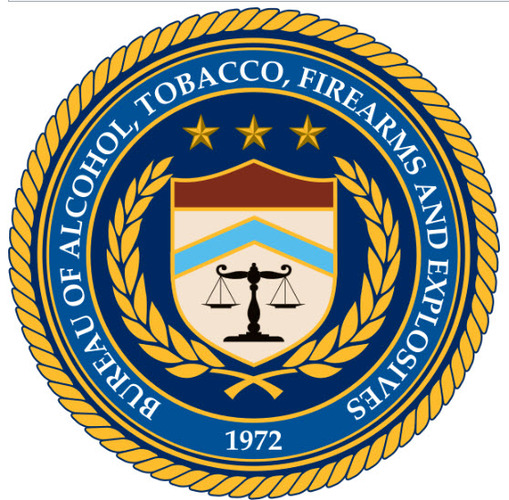
–>
July 10, 2022
During Prohibition, Al Capone’s Chicago gang made the Thompson submachine gun a symbol of gang violence. The “Chicago Typewriter” could empty a hundred-round drum magazine in under ten seconds, and make headlines, while occasionally perforating both targets and bystanders.
‘); googletag.cmd.push(function () { googletag.display(‘div-gpt-ad-1609268089992-0’); }); }
Congress saw an opportunity to “do something,” and “wasn’t willing to let a ‘crisis’ go to waste.” The ultimate result is the National Firearms Act of 1934 (“NFA”), which was later amended by the Gun Control Act of 1968 (“GCA”). The net result is that certain firearms and firearm-related items have seriously disfavored status, completely unrelated to anything having to do with crime or Constitution.
The NFA states that for certain items such as machine guns and suppressors, the purchaser must pay a $200 tax and then wait for extended periods for the federal government to decide that it’s okay for him to have the item. But the Supreme Court said in Bruen that “lengthy wait times in processing license applications or exorbitant fees deny ordinary citizens their right to public carry.”
The Bureau of Alcohol, Tobacco, Firearms, and Explosives (“BATFE”) routinely violates this idea with wait times of a year or more before issuing permits. Granted, they’re purchase authorizations, not carry permits, but the same idea applies. When you have a constitutional right to a weapon or suppressor, all other considerations require extremely careful examination.
‘); googletag.cmd.push(function () { googletag.display(‘div-gpt-ad-1609270365559-0’); }); }
When I go to a dealer to purchase a firearm, I must first fill out Form 4473 and pay a $5 fee to run a National Instant Check System (“NICS”) background check. If I fail the check, I’m out the fin and must go through an appeal process. Only when that is finished can I buy the gun. But ordinarily, I’m cleared out the door in minutes because I have a Florida license to carry. Without the license, it’s a three-day wait. Not exactly the same as waiting for a trial after January 6 but still….
But for my silencer, I had to send in my fingerprints, fill out a form, pay my $200, do not pass Go, and wait. And wait. And wait. When I look at the legal rules to own a suppressor (“silencer”), there are three basic criteria:
- I’m legally eligible to purchase a firearm in a state that allows suppressors.
- I pass the BATFE background check.
- I pay the $200 tax.
That’s it. In short, all this could be done in the five minutes it took to do the NICS check because it’s functionally the same background check. Add in the two C notes, and everything should be over in the time it takes to ring up the transaction. But so far, I’m at eleven months and counting. That definitely qualifies as a “lengthy wait time.” Even if we throw in the fingerprints, that shouldn’t take more than a day, since police can routinely get prints run in hours.

Image: Official BAFTE seal. Public domain.
Suppressors are legal. You heard me correctly. This is an essential key concept. Because I am a lawful gun owner, the only material difference is that I must pay the extra tax. Thus, the process does not describe a prohibition. Rather, the NFA is “to provide for… taxation.” Unfortunately, it’s also a way some bureaucrat who decides to shut you down to deny you your lawful exercise of your Second Amendment rights. Bruen, however, declared that if you are not a legally prohibited person, your right is exactly that: a right.
The NFA also covers “short barreled rifles,” “short barreled shotguns,” “machine guns,” “any other weapon,” and “destructive devices.” All of these, except for explosives, have the same conditions for possession. A brief overview will show how arbitrary these definitions are.
A short-barreled rifle has a barrel under 16 inches or a length of less than 26 inches. But!!! If the buttstock of an SBR is exchanged for a “brace” that can be secured to the shooter’s forearm, it’s now a pistol and doesn’t need to be taxed under the NFA. So, my AR pistol at 27 inches with a brace and a 10-inch barrel is legally a pistol and I’m free of the BATFE. But if I add a vertical foregrip for about $25, it suddenly becomes “any other weapon” and I must pay the $200 and go to BATFE for a blessing that may come next year. Of course, it’s still longer than the Israeli TAVOR battle rifle (26 ¼ inches) which is legally an ordinary rifle outside BATFE’s tax scheme regardless of any accessories I add.
‘); googletag.cmd.push(function () { googletag.display(‘div-gpt-ad-1609268078422-0’); }); } if (publir_show_ads) { document.write(“
Shotguns get more insane rules. They must have 18-inch barrels. Why? It’s just as arbitrary as 16-inch barrels for rifles. In United States v. Miller (1939), the Supreme Court ruled against weapons that did not have specific military applications. Sawed-off shotguns were not military weapons in 1939 but became key guns the “tunnel rats” carried in Vietnam. So, they are presumptively protected. But for the moment, BATFE gets its pound of flesh.
Another shotgun rule is particularly silly. You can fire .410 shotgun shells in many 45-caliber revolvers. But if you put a smooth bore barrel on the revolver instead of the rifled one, you now have “any other weapon,” again subject to tax. But such a revolver might be particularly valuable for home defense, which is clearly a protected right under Heller and Bruen.
We could go on, but it’s clear that BATFE has been acting in a way clearly hostile to Second Amendment rights by unreasonably delaying approval to purchase various firearms and accessories. Further, the law under which it operates is the very definition of “arbitrary and capricious.” Florida Statutes 120.57 2.d explains that “A rule is arbitrary if it is not supported by logic or the necessary facts; a rule is capricious if it is adopted without thought or reason or is irrational.” The Supreme Court has applied this definition in multiple cases.
We might suggest that restricting private ownership of explosives could be legal. The imposition of these excise taxes might be a lawful act. But levying a tax on the exercise of a constitutional right is a clear infringement of that right. If I want to buy a fully automatic weapon and pay for the immense amount of ammunition it eats just because it has the giggle switch (full auto selector), that is my right. I become liable when I misuse it, just as I would become liable for misusing a single shot derringer or a delivery truck.
Imposing extra taxes on a constitutionally protected activity is a prior restraint on that right. First Amendment cases have clearly held prior restraints to be unlawful. Lengthy wait times are similarly unconstitutional. And the provisions of the NFA are arbitrary and capricious. That must include the GCA prohibition on private ownership of automatic weapons manufactured after 1969. We must therefore conclude that the bulk of both the National Firearms Act and Gun Control Act is unconstitutional in both its text and application. SCOTUS should strike them both down at the earliest opportunity.
Ted Noel MD is a retired Anesthesiologist/Intensivist who podcasts and posts on social media as DoctorTed and @vidzette. His DoctorTed podcasts are available on many podcast channels.
<!– if(page_width_onload <= 479) { document.write("
“); googletag.cmd.push(function() { googletag.display(‘div-gpt-ad-1345489840937-4’); }); } –> If you experience technical problems, please write to [email protected]
FOLLOW US ON
<!–
–>
<!– _qoptions={ qacct:”p-9bKF-NgTuSFM6″ }; ![]() –> <!—-> <!– var addthis_share = { email_template: “new_template” } –>
–> <!—-> <!– var addthis_share = { email_template: “new_template” } –>







